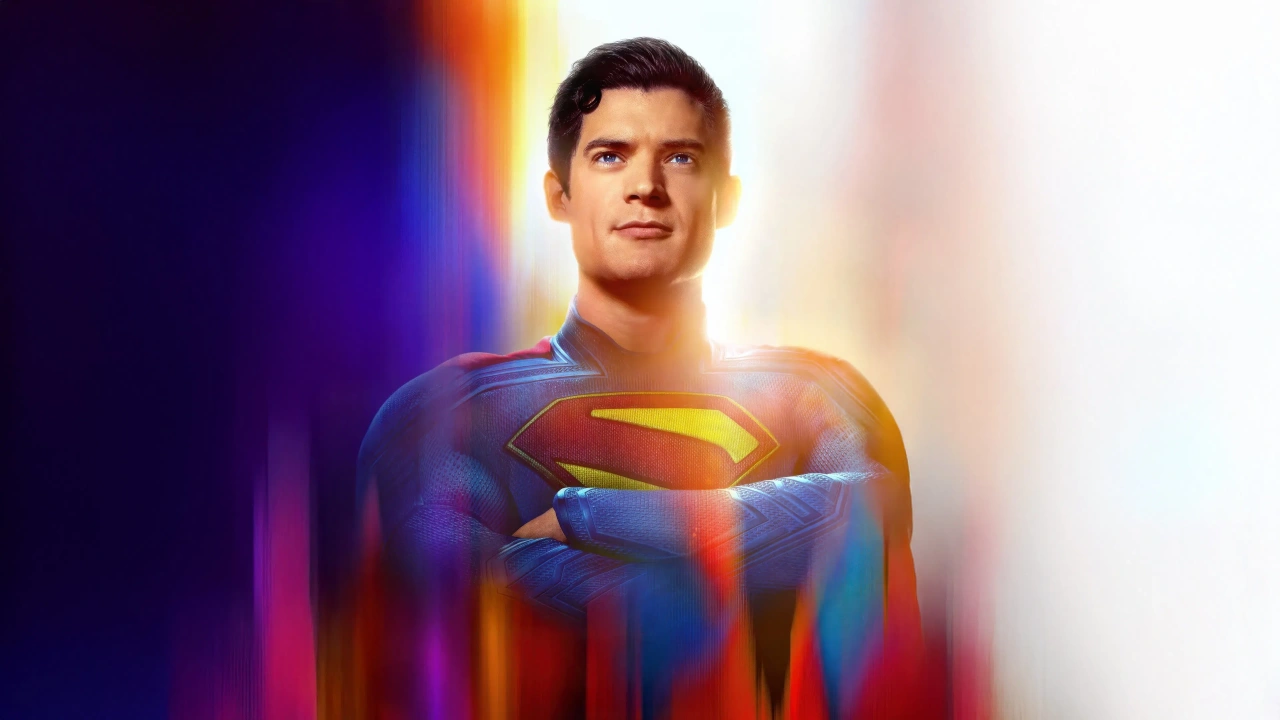Does the new Superman movie signal a cultural shift?

A central plot point of 2025's Superman movie features the titular hero trying to prevent a war between the fictional countries of Jarhanpur and Boravia, wherein the latter – a US ally – attempts to invade the former nation and occupy a portion of its land. The Boravian military is shown to have advanced weaponry and tanks (supplied by the film's villain, billionaire industrialist Lex Luthor), brutally attacking defenceless villagers in Jarhanpur, including children.
People around the world were quick to compare this conflict with the Israeli occupation of Palestine. Despite writer and director James Gunn's claims that this wasn't a direct analogy of Israel's attack on Palestine, the similarities are undeniable. The writer-director told The Times of London, "It's an invasion by a much more powerful country run by a despot into a country that's problematic in terms of its political history, but has totally no defence against the other country. It really is fictional." The statement itself didn't help sway people from this comparison either. Rather, it added fuel to the pro-Palestinian interpretation.
The references scattered throughout the movie – be it the parallels between the fictional Boravian president Vasil Ghurkos and Benjamin Netanyahu, the fact that the US supplied weapons to Boravia, or that the Boravian invasion is an attempt to free Jarhanpur from an "evil regime" – are all too on-the-nose not to be a reference to the Israeli genocide. The film's climax, showing Jarhanpur villagers raising a Superman flag and pleading for his help during the attack by Boravian soldiers, has also been noted by many viewers as visually similar to footage from the 2018 Gaza border protests.
Even Zionists and pro-Israelis have pointed out the similarities between Israel and Boravia, calling it "anti-Semitic" and accusing it of "spreading anti-Israel propaganda", despite no direct mention of Israel in the film itself.
The official Israeli consulate in Los Angeles responded with a Facebook post on July 11th, which featured an AI-generated parody of the film's poster, featuring Israel Defence Forces (IDF) soldiers and the caption "The Real Superheroes." Right-wing Zionist political commentator Ben Shapiro also gave a negative review of the film, where he unironically defended the fictional Boravia as he would Israel.
Even before the movie's release, its pro-immigration themes sparked controversy among the right-wing media in the United States, with Fox News journalists heavily mocking the film as being "Superwoke", including making fun of Superman actor David Corenswet's last name (which is of Jewish origins).
In 1940, Das Schwarze Korps, the official newspaper of the SS (Schutzstaffel, or Protection Squads) in Germany, published a similar piece criticising the Superman comic strip by creators Jerry Siegel and Joe Shuster, claiming it "poisoned the American youth" and made fun of Jerry Siegel's last name as well.
Superman stories have always referenced and challenged real-life geopolitics since the character's inception. In 1946, The Adventures of Superman radio show featured a storyline called "Clan of the Fiery Cross", where Superman fought a fictionalised version of the Ku Klux Klan (KKK). Prior to his work as a consultant on the show, human-rights activist Stetson Kennedy had already infiltrated the KKK. Through his contributions, he was able to expose the group's real practices by incorporating them directly into the show's storyline. This storyline had real ramifications for the hate group, causing a decline in their recruitment and membership numbers.
In fact, Superman has always been an allegory for immigration. After all, he is a refugee from a distant planet. On his very first appearance, he was labelled as a "champion of the oppressed" and fought against abusers and corrupt politicians. Whether by being called "poison for the youth" or "woke", the character has always offended the same particular kind of people.
The pro-immigration and pro-Palestinian themes of the 2025 film are just extensions of the central theme: kindness. It's a story that preaches that all life is sacred and worth preserving, and that anyone can choose to be good. This has always been the theme of Superman. To portray this theme in the past, the character had to fight allegories of Nazism and White Supremacy. Now, he is fighting allegories of anti-immigration and Zionism.
Intentional or not, the fact that most people have thought that the film is pro-Palestinian is a sign of a massive culture shift. This speaks to how culture and the stories we tell can be used as tools for morality when politics and laws are clearly in the wrong. A major Hollywood movie featuring an allegory that people infer to be pro-Palestinian is a hopeful sign of a shift in the way mainstream media portrays this issue.
In fact, previous iterations of Superman stories have influenced real-life events. Before the US officially entered World War II, opinions on Nazis in the US and other parts of the world were either positive or neutral. Both before and during the war, comic book characters like Superman and Captain America, as well as films such as The Great Dictator, were used as tools against the Nazis. Eventually, the collective public perception of Nazism became synonymous with systematic racial genocide. Similarly, people's responses to the new Superman story attest to the influence such storytelling mediums have.
If a message of kindness, one that speaks out against the horrific crimes committed in the real world, can be spread through the media we consume, then there is reason to be hopeful. Superman may not be real. But kindness is.
References:
1. Variety (July 16, 2025). James Gunn said 'Superman' is not about the Middle East; It's still sparking debates from Hasan Piker, Ben Shapiro and more political commentators over an Israel-Palestine connection.
2. Middle East Eye (July 14, 2025). Did Superman call out Israel?
3. Vanity Fair (July 11, 2025). Can Superman win the culture war? Why the backlash actually backfired.
4. German Propaganda Archive, Calvin University (April 25, 1940). Jerry Siegel intervenes!
5. Mondoweiss (July 18, 2025). Film review: James Gunn's Superman cements Israel's villain status in the American imagination.



 For all latest news, follow The Daily Star's Google News channel.
For all latest news, follow The Daily Star's Google News channel. 
Comments